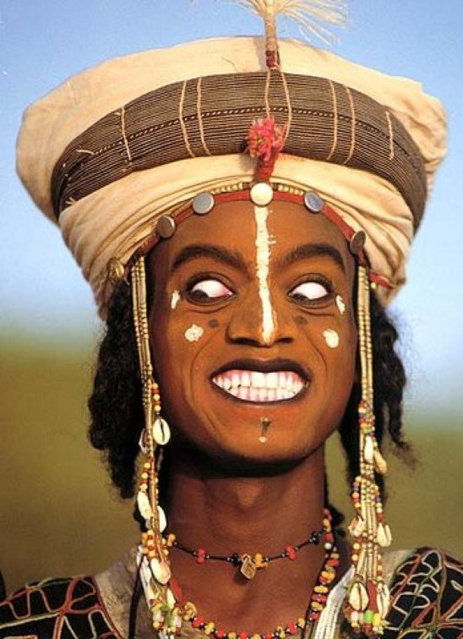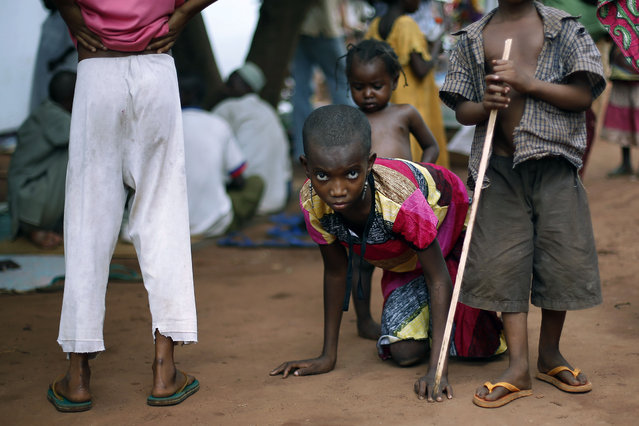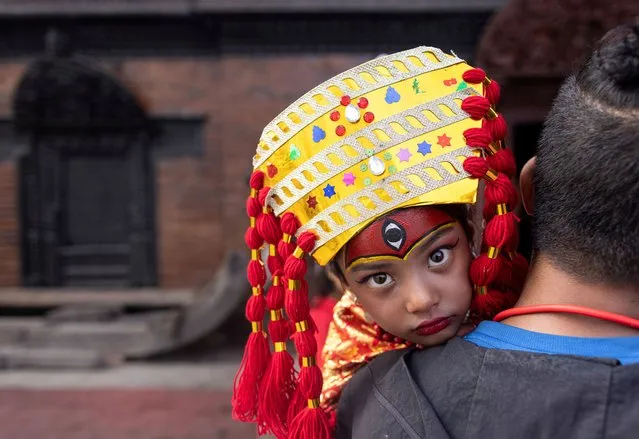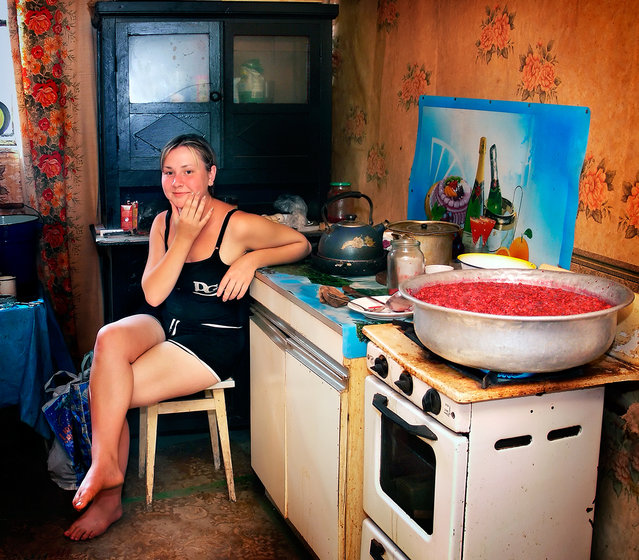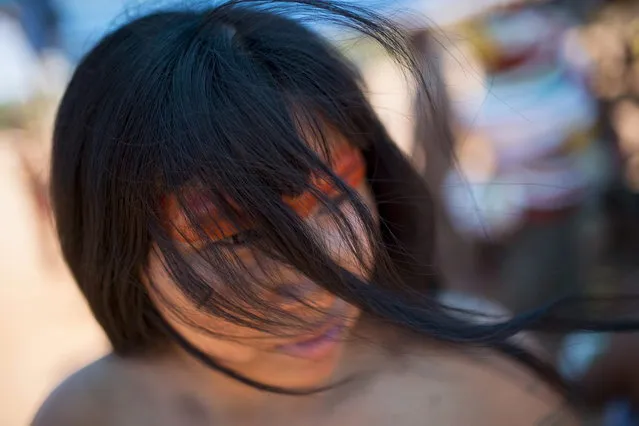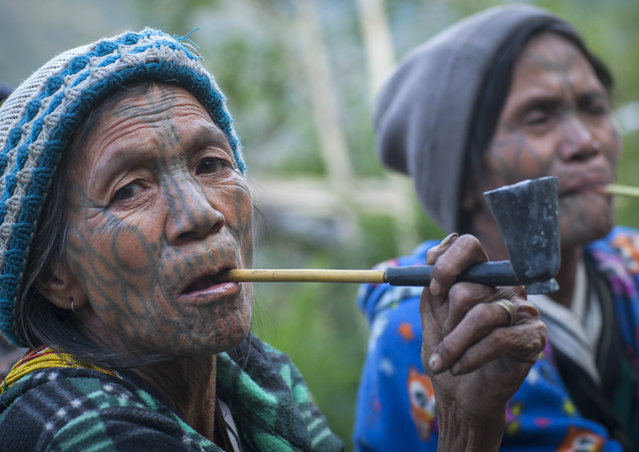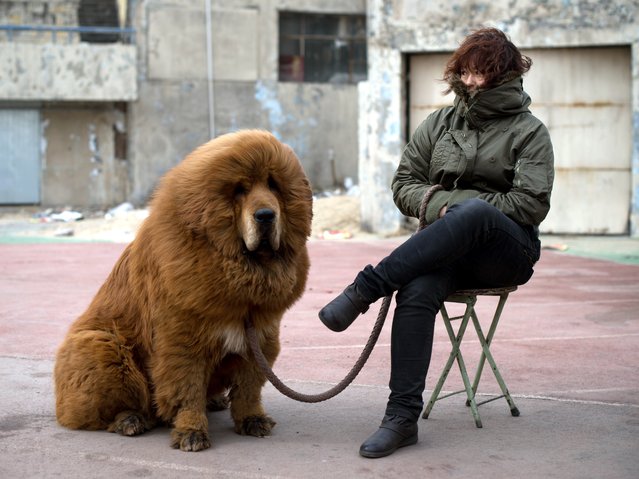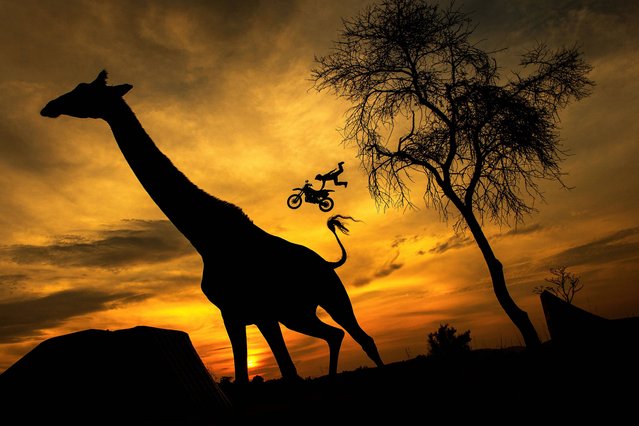
In this Wednesday, August 20, 2014 photo released by Red Bull, Maikel Melero of Spain warms up prior to the fifth stage of the Red Bull X-Fighters World Tour in the South African savanna of Pretoria, South Africa. (Photo by Joerg Mitter/AP Photo/Red Bull)
05 Sep 2014 11:21:00,post received
0 comments

